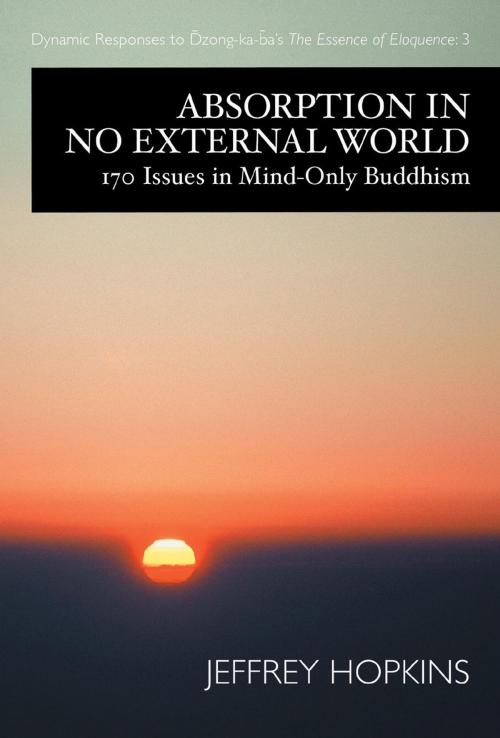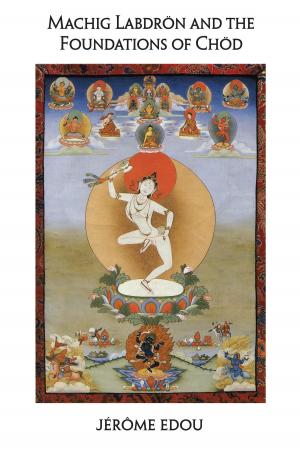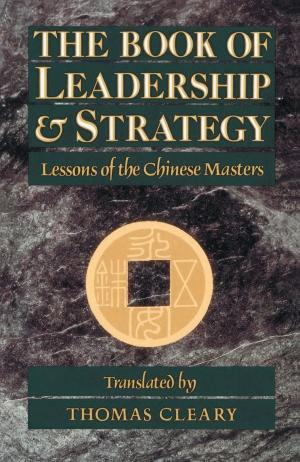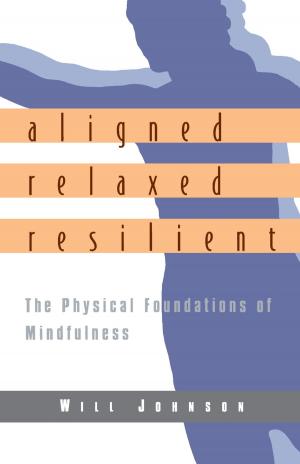Absorption in No External World
170 Issues in Mind-Only Buddhism
Nonfiction, Religion & Spirituality, Eastern Religions, Buddhism| Author: | Jeffrey Hopkins | ISBN: | 9780834800083 |
| Publisher: | Shambhala | Publication: | October 24, 2017 |
| Imprint: | Snow Lion | Language: | English |
| Author: | Jeffrey Hopkins |
| ISBN: | 9780834800083 |
| Publisher: | Shambhala |
| Publication: | October 24, 2017 |
| Imprint: | Snow Lion |
| Language: | English |
Dzong-ka-ba's The Essence of Eloquence is still considered so important to Tibetan Buddhists that the Dalai Lama keeps a copy with him wherever he goes. This book examines many fascinating points raised in six centuries of Tibetan and Mongolian commentary concerning the first two sections of this text: the Prologue, and the section on the Mind-Only School. By providing vivid detail, Jeffrey Hopkins reveals the liveliness of Tibetan scholastic controversies, showing the dynamism of thoughtful commentary and stimulating the reader's metaphysical imagination. In the process of examining 170 issues, this volume treats many engaging points on Great Vehicle presentations of the three natures and the three non-natures, including how to apply these to all phenomena, the selflessness of persons, and the emptiness of emptiness. It concludes with a delineation of the approaches through which the Mind-Only School interprets scriptures.This stand-alone book is the final volume of a trilogy on Mind-Only that Hopkins composed over a period of twenty-two years. His heavily annotated translation of the first two sections of Dzong-ka-ba's text is contained in the first volume, Emptiness in the Mind-Only School of Buddhism, along with a historical and doctrinal introduction, a detailed synopsis of the text, and a critical edition. The second volume, Reflections on Reality: The Three Natures and Non-Natures in the Mind-Only School, provides historical and social context, a basic presentation of the three natures, the two types of emptiness in the Mind-Only School, and the contrasting views of Dol-bo-ba Shay-rap-gyel-tsen of the Jo-nang-ba order of Tibetan Buddhism.
Dzong-ka-ba's The Essence of Eloquence is still considered so important to Tibetan Buddhists that the Dalai Lama keeps a copy with him wherever he goes. This book examines many fascinating points raised in six centuries of Tibetan and Mongolian commentary concerning the first two sections of this text: the Prologue, and the section on the Mind-Only School. By providing vivid detail, Jeffrey Hopkins reveals the liveliness of Tibetan scholastic controversies, showing the dynamism of thoughtful commentary and stimulating the reader's metaphysical imagination. In the process of examining 170 issues, this volume treats many engaging points on Great Vehicle presentations of the three natures and the three non-natures, including how to apply these to all phenomena, the selflessness of persons, and the emptiness of emptiness. It concludes with a delineation of the approaches through which the Mind-Only School interprets scriptures.This stand-alone book is the final volume of a trilogy on Mind-Only that Hopkins composed over a period of twenty-two years. His heavily annotated translation of the first two sections of Dzong-ka-ba's text is contained in the first volume, Emptiness in the Mind-Only School of Buddhism, along with a historical and doctrinal introduction, a detailed synopsis of the text, and a critical edition. The second volume, Reflections on Reality: The Three Natures and Non-Natures in the Mind-Only School, provides historical and social context, a basic presentation of the three natures, the two types of emptiness in the Mind-Only School, and the contrasting views of Dol-bo-ba Shay-rap-gyel-tsen of the Jo-nang-ba order of Tibetan Buddhism.















